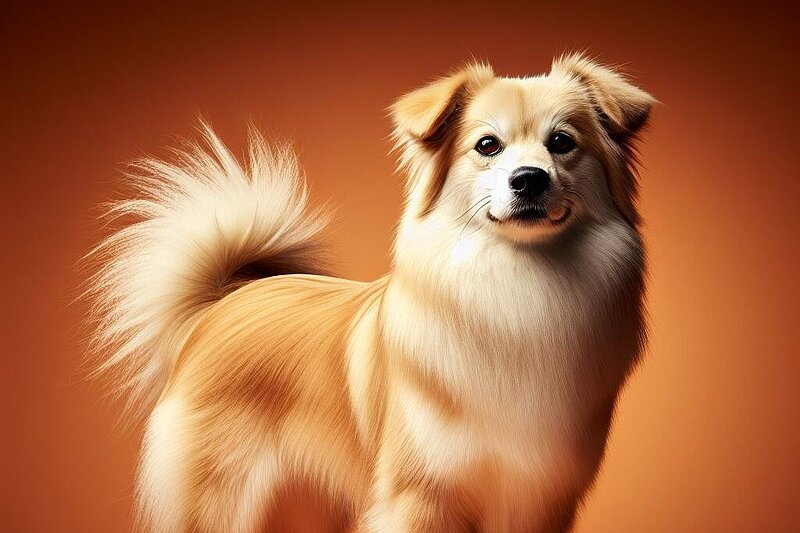The Icelandic Sheepdog: The robust companion from the far north
History of the Icelandic Sheepdog
The Icelandic Sheepdog has a long and fascinating history. Its roots go back to Viking times, when the first settlers brought dogs with them to Iceland. These dogs quickly became indispensable helpers when working with sheep and other farm animals. The isolation of Iceland led to the development of a unique breed of dog that was perfectly adapted to the harsh conditions of the island. Today, the Icelandic Sheepdog is a symbol of Icelandic culture and a cherished part of the national identity.
Who is the Icelandic Sheepdog suitable for?
The Icelandic Sheepdog is ideal for active people and families who spend a lot of time outdoors. They love being out in nature and need lots of exercise. If you enjoy hiking, jogging or other outdoor activities, you will find an Icelandic Sheepdog to be the perfect companion. Due to its friendly and outgoing nature, it is also well suited to families with children. However, they need enough space and are less suitable for life in a small city apartment unless they get enough exercise.
Character and behavior
Icelandic Sheepdogs are known for their friendliness, intelligence and even temperament. They are very social and love to be close to their people. Their alertness and protective instinct make them excellent watchdogs without being aggressive. Icelandic Sheepdogs are also very playful and curious, which makes them wonderful playmates for children. They generally get along well with other animals, especially if they are socialized at an early age.
Appearance of the Icelandic Sheepdog
The Icelandic Sheepdog is a medium-sized dog with a strong and well-proportioned build. Males reach a shoulder height of around 46 cm, while females are slightly smaller. The weight varies between 12 and 15 kg. The Icelandic Sheepdog's coat is dense and weatherproof, perfect for the harsh Icelandic weather conditions. There are two coat types: long-haired and short-haired, both with a dense undercoat. Coat colors vary and include different shades of brown, black and gray, often with white markings.
Grooming the Icelandic Sheepdog
Grooming an Icelandic Sheepdog is relatively straightforward, but requires regular attention. The dense coat should be brushed thoroughly at least once a week to prevent matting and remove loose hair. Daily brushing is recommended during the shedding season in spring and fall. The ears should be checked and cleaned regularly to prevent infections. Teeth also need regular care, ideally by brushing them daily. Claws should be trimmed if necessary, especially if the dog mainly walks on soft surfaces.
Health
Icelandic Sheepdogs are generally robust and healthy dogs. They have an average life expectancy of 12 to 15 years. Nevertheless, like all breeds, they are prone to certain genetic health problems. These include hip dysplasia, elbow dysplasia and eye diseases. Responsible breeders test their dogs for these conditions to minimize the risk.
Exercise and training
Icelandic Sheepdog are energetic dogs that need a lot of exercise. Daily walks, playtime in the garden and mental challenges such as training sessions and intelligence games are a must. They are very willing to learn and respond well to positive reinforcement. Early and consistent training is important to avoid unwanted behavior. Due to their herding instincts, it can be helpful to give them tasks that satisfy this natural urge.
Interactions with children and other animals
Icelandic Sheepdogs are excellent with children. They are patient, playful and protective of their small family members. However, it is always important to teach children how to treat dogs respectfully. Icelandic Sheepdogs also generally get along well with other animals, especially if they have been well socialized. Their friendly and inquisitive nature makes them pleasant companions for other dogs and pets.
Recognition and miscellaneous
The Icelandic Sheepdog is recognized by the FCI (Fédération Cynologique Internationale) and belongs to the group of Spitz and Primitive type dogs. This breed is a real gem for anyone looking for an active, friendly and loyal dog. Interestingly, the Icelandic Sheepdog is also one of the few breeds that has never become extinct in its homeland, indicating its adaptability and versatility.
